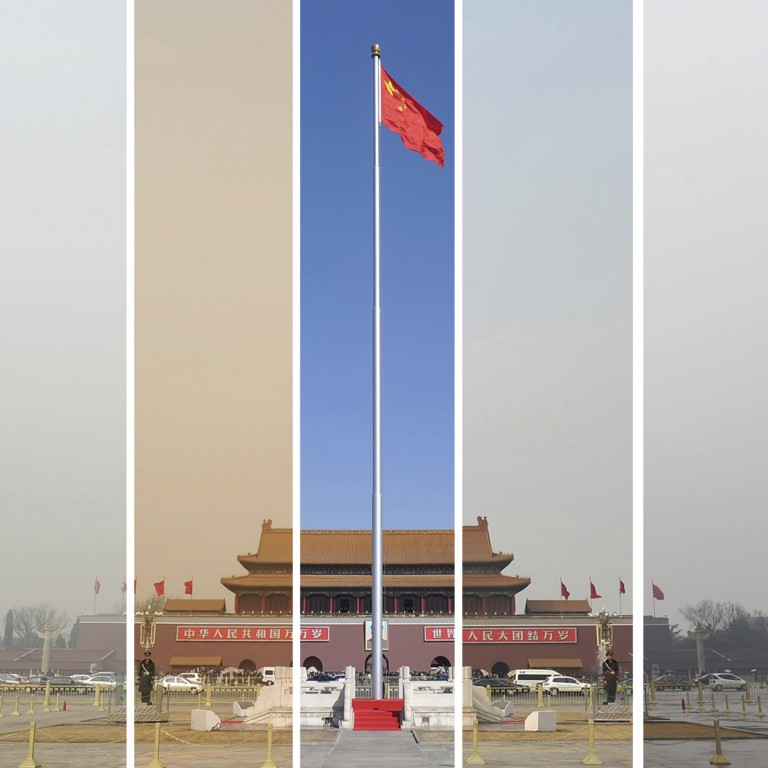
Only 3 of 74 Chinese cities meet air quality standard
Just three of 74 major cities recorded met national air quality standards throughout last year, a senior environmental official revealed yesterday in Beijing. Only Haikou in Hainan, Lhasa in Tibet and Zhoushan in Zhejiang met new standards. Shenzhen was among the 10 cities with the best air quality.
Just three of 74 major cities recorded met national air quality standards throughout last year, a senior environmental official revealed yesterday in Beijing.

Shenzhen was among the 10 cities with the best air quality.
Wu Xiaoqing, deputy minister for environmental protection, said the smog-plagued Beijing-Tianjin-Hebei area experienced air pollution on more than 60 per cent of days last year, the worst in the country.
Annual average levels of PM2.5 - tiny pollutant particles smaller than 2.5 microns that can penetrate deep into the lungs - reached 106 micrograms per cubic metre in the region, more than 10 times the World Health Organisation's safety limit of 10. The area also has seven of China's 10 most polluted cities.
Other built-up regions - city clusters in the Yangtze and Pearl River deltas - also registered chronic smog problems.

"Our measures to curb air, water and other types of pollution may somewhat stall the growth of our gross domestic product, but this is what we have to do," he said.
Wu said revisions to the Environmental Protection Law currently being considered would aim to increase fines for polluters so as to force factories to abide by emission limits.
The revision process has already taken more than a year because of fierce negotiations among interest groups, environmental law experts say.
Premier Li Keqiang last week told deputies attending the annual session of the National People's Congress, the country's top legislature, that the government would "declare war on pollution", but critics questioned the rhetoric, citing conflicting signals from the administration.
Environmental policy expert Wang Yi said the central government still maintained a strong economic growth target of 7.5 per cent, which made progress on cleaning up very difficult.
"The central government should put more resources into cleaning up. But actual spending on environment protection and energy conservation dropped by nearly 10 per cent," he said.
Some environmentalists also worry that the clean-up campaign may only create more environmental problems, as the leadership is encouraging moving dirty power-producing processes - such as turning coal into gas - in less developed regions.
But Wu defended the policy, saying the country's coal-rich western regions had a larger capacity to hold pollutants.

